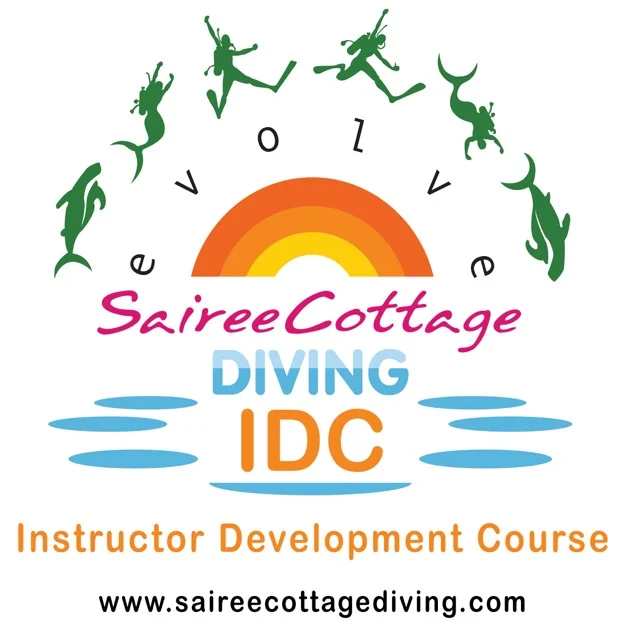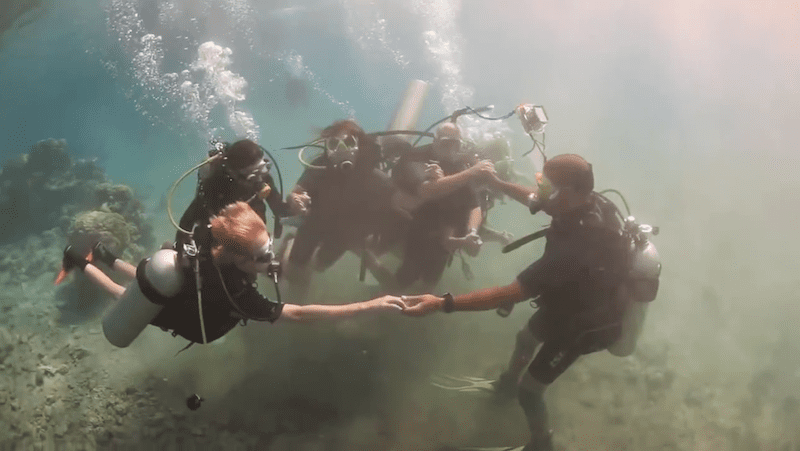Getting a bad Diving Instructor is the worst thing that can happen to a new scuba diver and it can mean people stop diving forever. I always say that getting a good or bad Diving Instructor is a lottery ticket. So, how do we recognise a bad Diving Instructor?
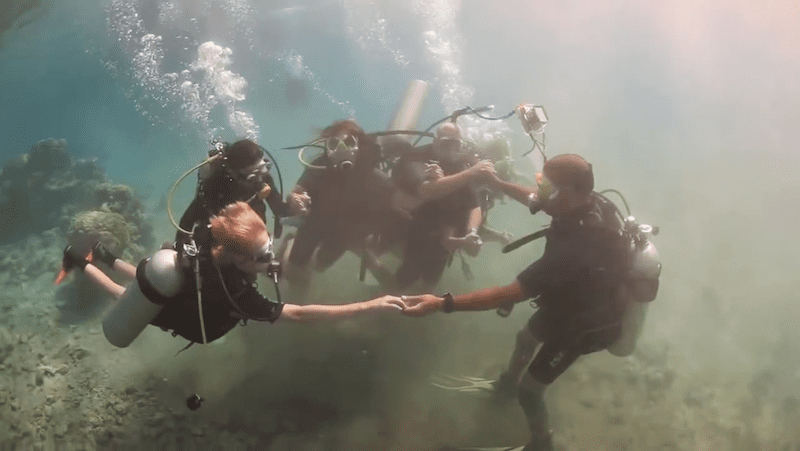
You always had this dream, this dream to learn how to scuba dive. You saved money for some time, maybe watched scuba diving and underwater documentaries and then you finally take some holiday and travel to some beautiful place in the world to learn how to scuba dive!
You finally arrive at your diving destination, and now you are looking for a good dive shop with certified and experienced Diving Instructors, after some shopping around and seeing all the differences between the dive shops you find the dive shop you are looking for, one with great facilities and friendly staff. But then, when you meet your Dive Instructor who is going to teach you the Open Water Diver course, something feels off…
I have been in the dive industry now for more then a decade and I have seen some of the best, but also, some of the worst Diving Instructors around. So why, if there are such very high training organisation standards, are there still any bad Dive Instructors out there? The problem does not lay with the mayor diving organisations like PADI, SSI, RAID or other diving training organisations. All these diving organisations have the highest dive training standards to best ensure quality and safety. The biggest problem lies with the individual Dive Instructor as a person. If that Diving Instructor deviates from these high standards and does whatever her or she wants then things start going wrong quickly. Sadly enough there are many Dive Instructors who bend or break the rules and most of them have learned it from each other. Here are my personal tips how to recognise these bad Diving Instructors and hopefully avoid them.
Does a Good Dive School Guarantee You Getting a Good Diving Instructor?
A lot of people think that if you choose a good diving school you automatically get a good Diving Instructor or equally, if you choose a bad dive school that you will automatically get a bad Dive Instructor.
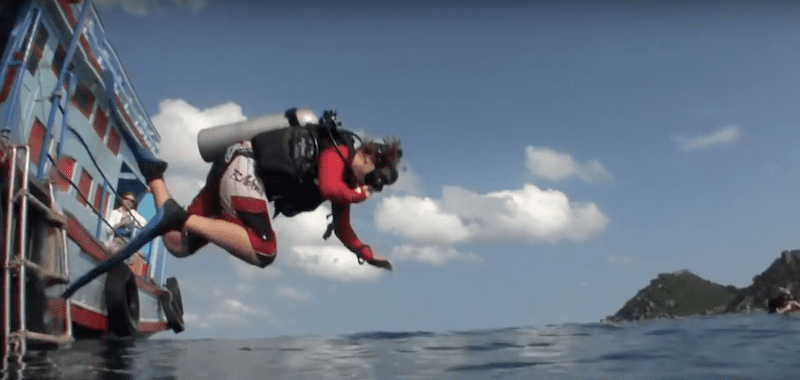
It does make sense, but strangely enough there are quite a few really good dive schools that have both great Diving Instructors and also a couple of really bad Diving Instructors. The problem is that even when the dive school looks amazing with amazing facilities, a great website, location and friendly marketing, this doesn’t guarantee that they are well-managed; certainly some might not even have a manager. Even if the dive school makes some great business decisions, it doesn’t necessarily mean that they have good control over their Dive Instructors. The Diving Instructor that works there can do pretty much what they want, so you, the student, is reliant on that individual Diving Instructor’s attitude as to whether they want to be a good or bad Dive Instructor. For you that means it’s a lottery who you get, dependant on what day and time you start your diving course.
Real Smile or Fake Smile?
A lot of Diving Instructors will greet you with a smile and a handshake when you first meet them. Sometimes that is just for the first few minutes until you sign up for the scuba diving course and then the smile and customer service disappears. But even worse are those bad Dive Instructors that only smile and entertain you throughout the course. A bad Diving Instructor like this will make you feel like he or she is fantastic, but what you don’t know is that that person is braking multiple dive organisation standards and jeopardising your safety significantly. So why would a Dive Instructor do that? Only one answer: to make more money…
Greed Makes for a Bad Diving Instructor
Many people complain that the dive industry is too focussed on making more and more money. Well…every industry is trying to make money, there is nothing wrong with selling a great service; it’s how you go about making that money which is important. Training organisations like PADI, SSI, RAID, CMAS and others all like to create new divers for several reasons and one reason is indeed financial. Dive Centres, Dive Shops and Dive Schools would also like to get their investment back and make a profit, and of course individual Diving Instructors also need to make a profit to pay for their lives besides diving. One way of creating a bit more income and salary for a Dive Instructor is to encourage people to buy diving equipment and another would be for the student to continue their diving education by taking the next diving course. In many cases the Diving Instructor will be hoping to get his or her Open Water Divers to take the Advanced Course.
“How much salary does a Diving Instructor make? – Learn more here”
A good Dive Instructor, however, will not focus only on making more money, a good dive Instructor will truly care about his or her diving students. A good Diving Instructor cares first about their safety and enjoyment. Funnily enough this focus will create more success as most of these diving students will want to stay and do more diving courses with that Instructor. A bad Dive Instructor is only focussed on making money and that greed almost always takes over. Most bad Diving Instructors have found out that if they smile and entertain diving students to make them happy they are more likely to get them to do the next diving course when really they should be focussing on safety and comfort and following their industry standards. Most of the time a bad Diving Instructor will oversell and push people to do more, resulting in less continuing education. They forget that nobody wants to spend time listening to a salesperson.
Know Your Own Diving Course Standards
The biggest problem with bad Dive Instructors is them breaking their dive organisation’s “standards”. On all diving courses you need to learn and perform certain tasks and skills in order to receive your diving certification. For example you need complete theory sections from your diving manual, perform certain diving skills in the pool or in confined open water and you will also need to perform diving skills during real open water dives. All training organisations have come up with a list of performance requirements that ensures the highest level of safety whilst you complete these skills happily and within your comfort-zone.
To complete these performance requirements does take time and they are not always fun (usually, but not always). A classic bad Diving Instructor will try to skip some of these standards and performance requirements to save time so they can get to the bar earlier or because they feel you will enjoy the diving course more if they skip the slightly harder bits, maybe thinking that will increase the chances of you doing the next diving course thus making them more money.
My tip is to do some research online or check your training organisation’s manual and make a list of the standards and performance requirements of your diving course and actually check if your Dive Instructor is actually doing them. I know this sounds crazy as you are paying a lot of money, but the dive industry is not perfect and your safety can be at risk if Diving Instructors break those all-important standards.
A Bad Diving Instructor is a Bad Leader
There are many ways to lead, some positive, some negative. For example you can be a good leader that leads by example or a bad leader that leads by creating fear. You can quickly recognise a good or bad Diving Instructor by how he or she treats and leads their Divemasters and Dive Instructor Interns (people who are assisting on the course). Most Diving Instructors will have an assistant during your diving course and seeing how your Dive Instructor treats them says a lot about if him or her.
Some scuba Instructors will be very nice to you as a diving student, but will treat their Divemaster(s) really badly. We seen many bad Diving Instructors treat their Divemasters like slaves by making them carry all the scuba tanks, wash all the dive equipment, pack all the diving bags and do any other crappy job that the bad Diving Instructor thinks they are “too good” to do. Now I am not saying that Divemasters should not carry tanks or wash and pack bags, I am saying that a good Diving Instructor will help the Divemaster with those jobs to save time and reduce workload. Bad Diving Instructors are usually very bad leaders.
Bad Diving Skills and Fast Swimming
Some Dive Instructors are great on land but really bad underwater. Usually bad Diving Instructors do not have bad diving skills because of ability; they usually have bad diving skills because they just don’t care about becoming better, the environment or their diving students.
A bad Dive Instructor will have their students perform their diving skills in inappropriate and sometimes dangerous areas just to save time, areas that are too deep, have no clear ascent and have potentially dangerous aquatic life nearby. A bad Diving Instructor will often stir up sand and damage coral and marine life, as he or she does not care about the underwater world. But one of the most frustrating things for dive students is a Diving Instructor that swims too fast. This can cause overexertion and even hypercapnia (too much CO2) and certainly will mean you miss out of seeing all the beautiful marine life on the way. Even if a Diving Instructor does care about showing marine life they will often swim fast in order to find a turtle or shark, whilst forgetting that it is a completely new world for you as a diving student and there are hundreds of fantastic marine species all around you. I can already tell you that some micro (small) stuff can be even cooler than a turtle if you just go slowly and look for details. Bad Dive Instructors lack knowledge of this or, again, just don’t care.
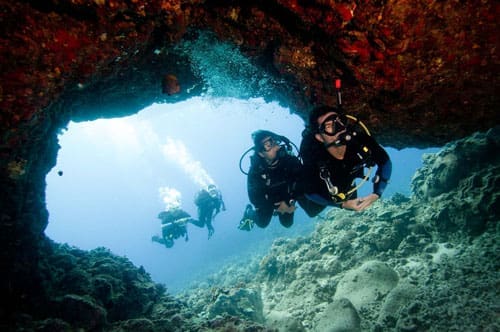
How to Avoid a Bad Diving Instructor?
Research is key and these days you can find tons or reviews online. I recommend TripAdvisor, the dive shop’s Facebook business page and of course YouTube. Chat with the Dive Instructor on arrival and ask him or her what would happen if you got nervous during the diving course. Look for how the Diving Instructor is dressed and evaluate their attitude. We can all easily recognise if a smile is real or fake. Look for how the Diving Instructor behaves whilst doing the paper work, especially the medical statement. Check the standards and performance requirements of your course and see if they are doing them all.
Conclusion
The Dive Industry (like any other industry) is not perfect and there are many great but also some not so good Diving Instructors out there. Hopefully this article will help you with what to look for so you can recognise if you’ve got a bad Diving Instructor on your hands. And most importantly, don’t forget to write a review after the completion of your diving course to give compliments to good Diving Instructors and to make sure that the bad Diving Instructors will either change or not get work in future. In the worst cases you can also report them to the dive-training organisation they represent.
Are you a recreational diver or a Divemaster that is looking to become a Diving Instructor and you want to learn how to become not only a good Diving Instructor, but a fantastic Diving Instructor? Then why don’t you contact Sairee Cottage Diving PADI 5 Star IDC Centre and ask about our high quality PADI Instructor Development Course (IDC) we teach on Koh Tao, Thailand.
